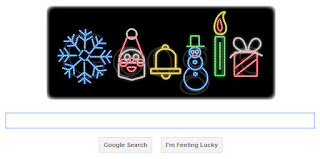The Revolution Will Not Be Televised
News broke last night of the death of Gil Scott-Heron, the influential writer, poet, and musician whose marriage of politically charged spoken verse, propulsive rhythm, and blues and soul textures paved the way for hip-hop (though he would often reject that notion). The cause of death was not immediately made public, although his publicist said that he had taken ill shortly after returning from a European trip. He was 62.
Scott-Heron started out as a devotee of the poet and novelist Langston Hughes, moving from his Jackson, Tennessee hometown—where he was raised after being born in Chicago—to study at Pennsylvania’s Lincoln University, where Hughes had matriculated. It was there that Scott-Heron would write two early novels, The Vulture and The Nigger Factory, the first being published when he was only 19. He also formed the band Black & Blues with Brian Jackson, who would become one of his most frequent collaborators throughout the 1970s.
His first album, 1970’s Small Talk At 125th At Lenox, was recorded live at a nightclub at the titular address, with Scott-Heron (proclaimed on the cover as “A New Black Poet”) reciting his fiery verse over a minimalist backing of congas, piano, and guitar. It contains two of Scott-Heron’s most famous works: “The Revolution Will Not Be Televised” and “Whitey On The Moon.” The latter was a mordant bit of street-level social commentary in which Scott-Heron contrasted the government’s recent triumph of the moon landing with the very real problems that were left behind here on Earth (“Was all that money I made last year / For whitey on the moon?”). And “Revolution”—which became even more popular after a full band re-recorded version was released in 1971—offered a dizzying array of pop culture references in its sly satire of a nation distracted by movie stars and sitcoms and the empty promises of consumerism, its wake-up call (and titular refrain) becoming a touchstone for generations of activists, poets, and musicians.
Scott-Heron’s incredible run of 13 albums in the ’70s and early ’80s, beginning with 1971’s more musically oriented Pieces Of A Man and continuing through 1982’s Moving Target, made him a critical darling, though widespread popularity eluded him. His essential 1974 album Winter In America came closest to breaking him through to a mainstream audience, thanks to the success of Caribbean-flavored single “The Bottle” (a song that’s been sampled by many hip-hop artists over the years, from the Jungle Brothers to De La Soul) and a jazz-fusion sound that incorporated African and funk rhythms. Many critics and artists over the years have pointed to Winter In America as a sort of blueprint for the hip-hop and neo-soul that would soon spring up in its wake.
For his part, Scott-Heron always rejected the notion that he had anything to do with hip-hop, preferring to call his music “bluesology,” and even occasionally saying that he didn’t want to “take the blame” for what rap would become. He would address his uneasy relationship with the genre he helped inspire most directly on 1994’s “Message To The Messengers”: The opening track on Spirits, Scott-Heron’s first album since taking a nearly 12-year break from recording, “Message” acknowledged that hip-hop was coming from the same place as the street poetry movement he’d been a part of alongside people like The Last Poets and The Watts Prophets, with Scott-Heron offering them some sage advice from the elder generation. “We got respect for you rappers and the way they be free-weighin'” he said, “But if you're gon' be teachin' folks things, make sure you know what you're sayin’”—urging them to learn “the real deal about past situations,” preach a message of peace to “all them gun-totin' young brothers” killing each other, and clean up all the derogatory rhymes aimed at objectifying women.
R.I.P. Gil Scott-Heron
News broke last night of the death of Gil Scott-Heron, the influential writer, poet, and musician whose marriage of politically charged spoken verse, propulsive rhythm, and blues and soul textures paved the way for hip-hop (though he would often reject that notion). The cause of death was not immediately made public, although his publicist said that he had taken ill shortly after returning from a European trip. He was 62.
Scott-Heron started out as a devotee of the poet and novelist Langston Hughes, moving from his Jackson, Tennessee hometown—where he was raised after being born in Chicago—to study at Pennsylvania’s Lincoln University, where Hughes had matriculated. It was there that Scott-Heron would write two early novels, The Vulture and The Nigger Factory, the first being published when he was only 19. He also formed the band Black & Blues with Brian Jackson, who would become one of his most frequent collaborators throughout the 1970s.
His first album, 1970’s Small Talk At 125th At Lenox, was recorded live at a nightclub at the titular address, with Scott-Heron (proclaimed on the cover as “A New Black Poet”) reciting his fiery verse over a minimalist backing of congas, piano, and guitar. It contains two of Scott-Heron’s most famous works: “The Revolution Will Not Be Televised” and “Whitey On The Moon.” The latter was a mordant bit of street-level social commentary in which Scott-Heron contrasted the government’s recent triumph of the moon landing with the very real problems that were left behind here on Earth (“Was all that money I made last year / For whitey on the moon?”). And “Revolution”—which became even more popular after a full band re-recorded version was released in 1971—offered a dizzying array of pop culture references in its sly satire of a nation distracted by movie stars and sitcoms and the empty promises of consumerism, its wake-up call (and titular refrain) becoming a touchstone for generations of activists, poets, and musicians.
Scott-Heron’s incredible run of 13 albums in the ’70s and early ’80s, beginning with 1971’s more musically oriented Pieces Of A Man and continuing through 1982’s Moving Target, made him a critical darling, though widespread popularity eluded him. His essential 1974 album Winter In America came closest to breaking him through to a mainstream audience, thanks to the success of Caribbean-flavored single “The Bottle” (a song that’s been sampled by many hip-hop artists over the years, from the Jungle Brothers to De La Soul) and a jazz-fusion sound that incorporated African and funk rhythms. Many critics and artists over the years have pointed to Winter In America as a sort of blueprint for the hip-hop and neo-soul that would soon spring up in its wake.
For his part, Scott-Heron always rejected the notion that he had anything to do with hip-hop, preferring to call his music “bluesology,” and even occasionally saying that he didn’t want to “take the blame” for what rap would become. He would address his uneasy relationship with the genre he helped inspire most directly on 1994’s “Message To The Messengers”: The opening track on Spirits, Scott-Heron’s first album since taking a nearly 12-year break from recording, “Message” acknowledged that hip-hop was coming from the same place as the street poetry movement he’d been a part of alongside people like The Last Poets and The Watts Prophets, with Scott-Heron offering them some sage advice from the elder generation. “We got respect for you rappers and the way they be free-weighin'” he said, “But if you're gon' be teachin' folks things, make sure you know what you're sayin’”—urging them to learn “the real deal about past situations,” preach a message of peace to “all them gun-totin' young brothers” killing each other, and clean up all the derogatory rhymes aimed at objectifying women.
While not everyone in the rap community heeded his words, obviously, Scott-Heron nevertheless became a hero to scores of hip-hop artists over the years, championed by everyone from Chuck D to Kanye West (who most recently sampled “Comment #1,” from Scott Heron’s debut, on My Beautiful Dark Twisted Fantasy’s “Who Will Survive In America”). And thus Scott-Heron remained a looming cult figure throughout the ’90s and beyond, even as his career was often derailed by problems with drugs, which led to two incarcerations for cocaine possession in the last decade as he struggled openly with his addictions.
Nevertheless, Scott-Heron remained active in his later years, enjoying a renaissance in 2010 with the acclaimed, XL-released I’m New Here, which set his words to minimalist electronic music by producer Richard Russell. It’s a dark and haunting album, full of some of Scott-Heron’s most autobiographically searching material ever, and at times it borders on weary elegy in its ruminations on his own mortality. The black pall that hangs over it was lifted somewhat by the follow-up remix We’re New Here, in which The xx’s Jamie Smith provides new context with slightly brighter samples, turning the eulogy into something downright exuberant at times. Taken as a pair, both albums provide a fitting bookend to Scott-Heron’s musical worldview, which wallowed in street grime but found the hope and beauty in it too. Listening to either would make a worthy tribute to the man today—as would, of course, any of the other albums we’ve talked about here, or any that we didn’t mention, all of which are essential pieces of Scott-Heron’s legacy.
Scott-Heron started out as a devotee of the poet and novelist Langston Hughes, moving from his Jackson, Tennessee hometown—where he was raised after being born in Chicago—to study at Pennsylvania’s Lincoln University, where Hughes had matriculated. It was there that Scott-Heron would write two early novels, The Vulture and The Nigger Factory, the first being published when he was only 19. He also formed the band Black & Blues with Brian Jackson, who would become one of his most frequent collaborators throughout the 1970s.
His first album, 1970’s Small Talk At 125th At Lenox, was recorded live at a nightclub at the titular address, with Scott-Heron (proclaimed on the cover as “A New Black Poet”) reciting his fiery verse over a minimalist backing of congas, piano, and guitar. It contains two of Scott-Heron’s most famous works: “The Revolution Will Not Be Televised” and “Whitey On The Moon.” The latter was a mordant bit of street-level social commentary in which Scott-Heron contrasted the government’s recent triumph of the moon landing with the very real problems that were left behind here on Earth (“Was all that money I made last year / For whitey on the moon?”). And “Revolution”—which became even more popular after a full band re-recorded version was released in 1971—offered a dizzying array of pop culture references in its sly satire of a nation distracted by movie stars and sitcoms and the empty promises of consumerism, its wake-up call (and titular refrain) becoming a touchstone for generations of activists, poets, and musicians.
Scott-Heron’s incredible run of 13 albums in the ’70s and early ’80s, beginning with 1971’s more musically oriented Pieces Of A Man and continuing through 1982’s Moving Target, made him a critical darling, though widespread popularity eluded him. His essential 1974 album Winter In America came closest to breaking him through to a mainstream audience, thanks to the success of Caribbean-flavored single “The Bottle” (a song that’s been sampled by many hip-hop artists over the years, from the Jungle Brothers to De La Soul) and a jazz-fusion sound that incorporated African and funk rhythms. Many critics and artists over the years have pointed to Winter In America as a sort of blueprint for the hip-hop and neo-soul that would soon spring up in its wake.
For his part, Scott-Heron always rejected the notion that he had anything to do with hip-hop, preferring to call his music “bluesology,” and even occasionally saying that he didn’t want to “take the blame” for what rap would become. He would address his uneasy relationship with the genre he helped inspire most directly on 1994’s “Message To The Messengers”: The opening track on Spirits, Scott-Heron’s first album since taking a nearly 12-year break from recording, “Message” acknowledged that hip-hop was coming from the same place as the street poetry movement he’d been a part of alongside people like The Last Poets and The Watts Prophets, with Scott-Heron offering them some sage advice from the elder generation. “We got respect for you rappers and the way they be free-weighin'” he said, “But if you're gon' be teachin' folks things, make sure you know what you're sayin’”—urging them to learn “the real deal about past situations,” preach a message of peace to “all them gun-totin' young brothers” killing each other, and clean up all the derogatory rhymes aimed at objectifying women.
While not everyone in the rap community heeded his words, obviously, Scott-Heron nevertheless became a hero to scores of hip-hop artists over the years, championed by everyone from Chuck D to Kanye West (who most recently sampled “Comment #1,” from Scott Heron’s debut, on My Beautiful Dark Twisted Fantasy’s “Who Will Survive In America”). And thus Scott-Heron remained a looming cult figure throughout the ’90s and beyond, even as his career was often derailed by problems with drugs, which led to two incarcerations for cocaine possession in the last decade as he struggled openly with his addictions.
Nevertheless, Scott-Heron remained active in his later years, enjoying a renaissance in 2010 with the acclaimed, XL-released I’m New Here, which set his words to minimalist electronic music by producer Richard Russell. It’s a dark and haunting album, full of some of Scott-Heron’s most autobiographically searching material ever, and at times it borders on weary elegy in its ruminations on his own mortality. The black pall that hangs over it was lifted somewhat by the follow-up remix We’re New Here, in which The xx’s Jamie Smith provides new context with slightly brighter samples, turning the eulogy into something downright exuberant at times. Taken as a pair, both albums provide a fitting bookend to Scott-Heron’s musical worldview, which wallowed in street grime but found the hope and beauty in it too. Listening to either would make a worthy tribute to the man today—as would, of course, any of the other albums we’ve talked about here, or any that we didn’t mention, all of which are essential pieces of Scott-Heron’s legacy.

 Ayo Indonesia Bisa
Ayo Indonesia Bisa













0 Comments:
Posting Komentar